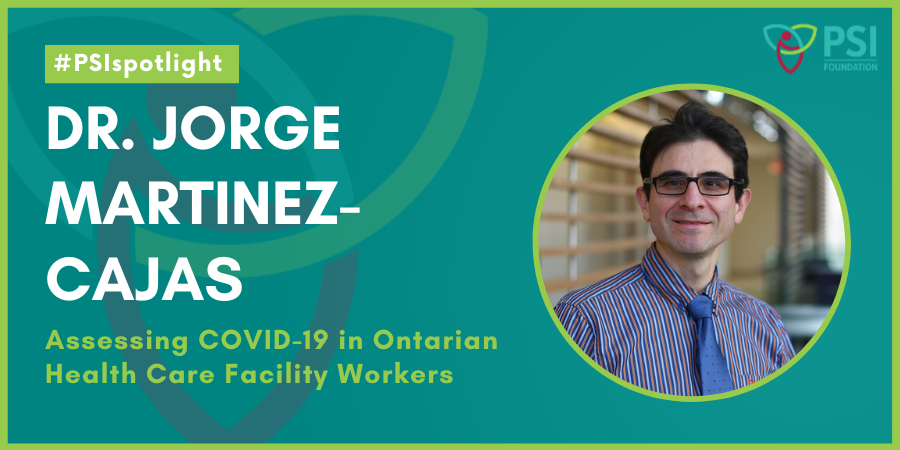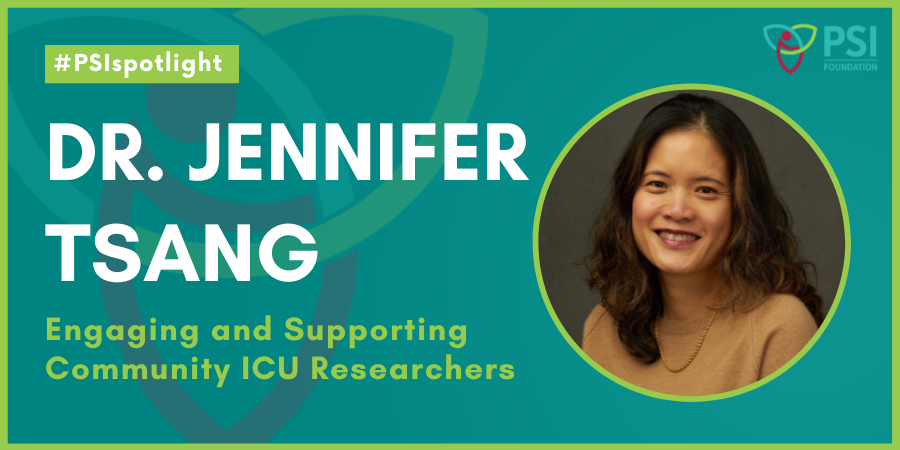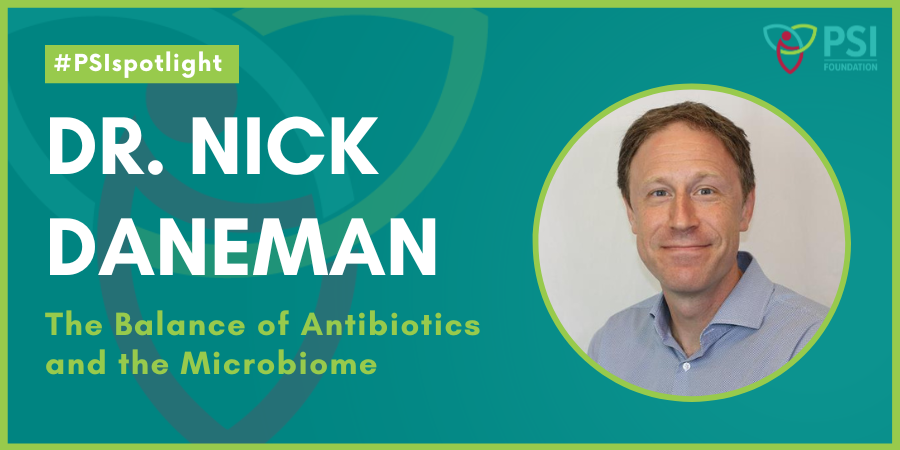“This study helped us confirm that at a local level, consistent infection control, community protective measures and vaccines were effective at halting the spread of SARS-CoV-2 for almost a full year. It also reminded us that a pandemic respiratory virus can mutate and overcome many of the prevention measures we introduced as the Omicron variant did in late 2021. We are indebted to the PSI Foundation for funding this study which is unique in Canada.” -Dr. Jorge Martinez-Cajas
About Dr. Jorge Martinez-Cajas
Dr. Jorge Martinez-Cajas is an Associate Professor in the Division of Infectious Diseases in the Department of Medicine at Queen’s University, with a cross-appointment in the Department of Biomedical and Molecular Sciences. He completed a three-year CIHR Canadian HIV Trials Network (CTN) research fellowship at the McGill AIDS Centre, where he studied antiretroviral drug resistance.
Dr. Martinez-Cajas leads the Canada-Colombia Collaboration Against HIV and AIDS, a recently established network of Canadian and Colombian institutions dedicated to HIV and AIDS research and care. His research focuses on the treatment of HIV infection in resource-limited settings, the implementation of HIV pre-exposure prophylaxis (PrEP) in Latin America, and outpatient parenteral antimicrobial treatments.
About the Funded Study
At the beginning of the COVID-19 pandemic, Dr. Martinez-Cajas recognized the need to assess infection risk among Ontario healthcare workers and the patients they served. At the time, over 71,000 cases and more than 5,000 deaths had been reported in Canada, with the majority occurring in older adults–particularly in long-term care facilities. In Ontario, 13% of all cases were in long-term care residents, yet they accounted for 70% of provincial deaths.
The PSI-funded study examined how healthcare workers’ roles in long-term and acute care facilities in Southeastern Ontario shaped outbreak risk and antibody development. It also assessed risk and protective factors for SARS-CoV-2 infection, including whether vaccination correlated with reduced infection rates.
Dr. Martinez-Cajas and Co-Investigator Dr. Yanping Gong recruited 205 healthcare workers from four facilities, including one acute care hospital and three long-term care homes. With the arrival of the Omicron wave in fall 2021, the research team followed up with participants to track infection risk before and after Omicron. By measuring antibody levels in healthcare workers exposed during outbreaks; those who cared for COVID-19 patients; and control groups with no direct exposure, the funded study identified proportions of susceptible versus protected workers.
Impact of the Funded Study
This study’s findings established a cohort model that can inform not only COVID-19 research, but also preparedness for future influenza or respiratory outbreaks. Dr. Martinez-Cajas highlighted areas for improvement in building larger cohorts, strengthening infrastructure and healthcare system readiness, and prioritizing resources during pandemics.
Reflecting on the findings, Dr. Martinez-Cajas explains: “this report examines the risk of infection by SARS-CoV-2 infection in a cohort or healthcare workers in a low-prevalence region in Ontario,” says Dr. Martinez-Cajas. “Its findings include infections driven by occupational exposures before Omicron but driven by community exposures after Omicron, protective effect of booster doses of vaccines, and additional protective effects against community infection by consistent adherence to mask use and social distancing even during the omicron waves. These findings are relevant for future pandemic preparedness.”
The study’s impact extends beyond just a single project, supporting future research and strengthening future pandemic preparedness in Ontario and beyond.




